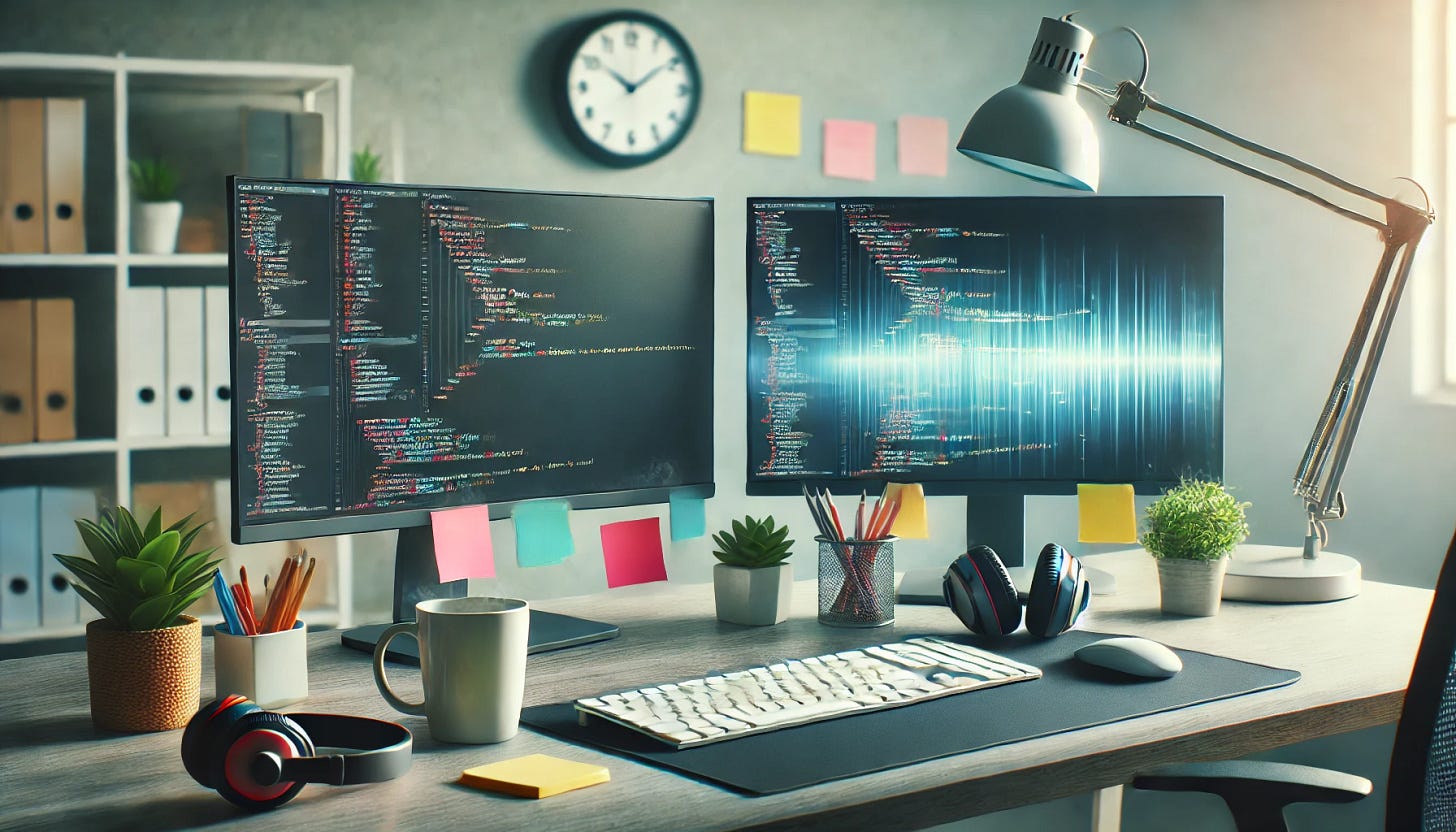Why Do Developers Need Blocked-Out Time?
Uncovering the Secrets to Peak Productivity
At least once a week, I hear someone say they “wish they had time to get their work done,” had fewer meetings and interruptions, and did not feel they needed to work overtime just to finish their work. According to the 2020 Stack Overflow Survey, more than 75 percent of developers work overtime occasionally, while 25 percent work overtime at least once weekly. Moreover, about one-third of developers code on the weekend.
This is a real issue. It creates a caustic working environment, destroys the culture, eliminates productivity, and can ultimately hurt the organization's growth as all the good people leave.
When we worked in the office, we could go to a meeting room, close our door, or even just put on headphones.
We seem to believe we must attend every meeting we are asked to attend.
Here's a question we need to ask ourselves: is this a process problem that needs to be addressed at the project and leadership level, or is it a personal problem because we find it difficult to say no?
Maybe Both!
Carl Jung once said, 'The creative mind plays with the objects it loves. That’s why it’s so important to find a space where you can be alone and uninterrupted to immerse yourself in your work.' Imagine a workspace where you can think clearly, focus on the task at hand, and let your creativity flow. This is the potential of an uninterrupted workspace.
The Power of Deep Work
Content switching is a mind-killer. Developers face constant interruptions and distractions —emails pinging, meetings beckoning, and colleagues dropping by with "quick questions." True productivity is impossible.
True productivity happens at a deeper level, below the surface of all this noise, in the tranquil depths of uninterrupted concentration.
Blocked-out time allows developers to plunge into these depths, achieving what state psychologist Mihaly Csikszentmihalyi calls "flow."
Time dissolves, creativity flourishes in this flow state, and complex problems unravel with elegant simplicity.
Here, developers transform lines of code into robust applications and innovative solutions.
Interruptions: The Silent Productivity Killer
Developers lose a significant amount of time due to interruptions while coding. According to research, it can take up to 23 minutes to regain full concentration after an interruption.
This disruption is particularly costly for developers whose work demands intricate problem-solving and deep focus.
The frequent need to switch contexts can derail progress, decreasing productivity and efficiency. Each interruption is like tossing a wrench into its gears, derailing thoughts and fracturing focus.
These interruptions are particularly costly to the organization.
Without blocked-out time, developers find themselves in a perpetual cycle of context switching, akin to a car stuck in stop-and-go traffic—always moving but never quite reaching full speed.
Crafting a Fortress of Focus
Creating blocked-out time is like building a fortress around one’s focus. Here are the secrets to constructing that fortress:
Set Clear Boundaries: Communicate with your team about your blocked-out time. Use tools like Slack statuses or calendar blocks to signal when you’re in deep work mode.
Teams need to define working hours.
Leaders must be careful to manage project meetings and support heads down time.
Google and others have no meeting days.
This must be done at the corporate level — It is a cultural change; if only one team or group tries this — it will fail.
Optimize Your Environment: Design a workspace that minimizes distractions. Noise-canceling headphones, tidy desks, and dedicated workspaces can help maintain concentration.
Create a team rule for the office: headphones are the same as a closet door.
Virtually — use the out-of-office settings or another process to communicate the same status.
Leverage Technology: Utilize productivity apps and tools that support focus.
Leverage tools to block notifications.
Turn off the phone and other social media apps.
One idea is to create another image or set up another laptop only for deep work—without distractions.
10 Ways to Increase Productivity by Improving Your Developer Experience
Prioritize Tasks: Not all tasks require deep work. Reserve your blocked-out time for the most challenging and creative tasks, leaving routine activities for less focused periods.
Learn about the Lee Method or Eisenhower Matrix.
The Ripple Effect of Productivity
Blocked-out time benefits developers and has a ripple effect throughout the organization. When developers operate at peak productivity, projects advance more swiftly, innovation blossoms and the quality of work elevates.
Teams sync more efficiently, deadlines become less daunting, and overall morale boosts as everyone rides the wave of collective progress.
This helps teams move closer to high-performing teams requiring less management and oversight.
Embracing the Future of Work
Blocked-out time is more than just a productivity hack —it’s a profound shift in how we approach work.
It acknowledges that developers, like all creative professionals, need undisturbed stretches to dive deep, think critically, and create innovatively.
Stop thinking of technologists as line workers and realize they are artists who need time to be creative and problem-solvers.




Love it!